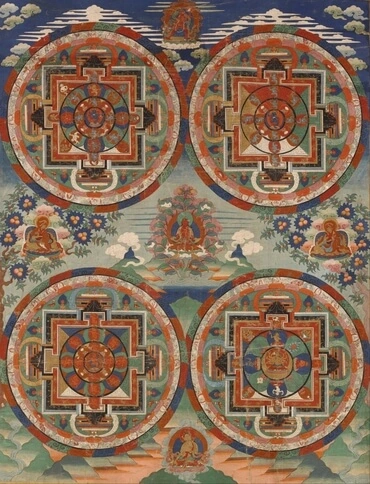1
Zatim me povede u Hekal. Izmjeri mu polustupove: bijahu široki šest lakata s jedne i šest lakata s druge strane.
2
Vrata bijahu široka deset lakata: sa svake strane po jedno krilo od pet lakata. A zatim izmjeri Hekal: bijaše dugačak četrdeset, a širok dvadeset lakata.
3
Onda uđe i izmjeri polustupove vrata: dva lakta; zatim vrata: šest lakata; pa širinu vrata: sedam lakata.
4
Izmjeri zatim unutrašnji prostor: dužina dvadeset lakata, širina ispred Hekala dvadeset lakata. I reče mi: "To je Svetinja nad svetinjama."
5
Potom izmjeri zid Doma: šest lakata. Pobočne prostorije bijahu široke četiri lakta, sve oko Doma.
6
Pobočne prostorije bijahu jedna nad drugom, bijaše ih trideset na tri bÓoja. U hramskom zidu bijahu, sve uokolo, zasjeci da prihvate pobočne prostorije. Tako one ne bijahu ugrađene u hramski zid.
7
Širina se prostorija povećavala od boja do boja, jer su one sve uokolo, na bojeve, okruživale Dom, a Dom je, kako se uzlazilo, ostavljao sve širi prostor. S najdonjeg se boja uzlazilo na najgornji kroza srednji.
8
Onda vidjeh sve oko Doma neku uzvisinu. Osnove pobočnih prostorija: cijela trska, šest lakata.
9
Debljina vanjskoga zida pobočnih klijeti: pet lakata. Prolaz između pobočnih prostorija Doma
10
i klijeti bijaše, sve uokolo Doma, dvadeset lakata širok.
11
Iz pobočne prostorije izlažahu na prolaz jedna vrata prema sjeveru i jedna prema jugu. Prolaz bijaše širok pet lakata svud uokolo.
12
Zdanje što zatvaraše ograđeni prostor sa zapada bijaše široko sedamdeset lakata, a zid te građevine posvud uokolo bijaše debeo pet lakata i dugačak devedeset lakata.
13
On izmjeri Dom: bijaše dugačak stotinu lakata. Ograđeni prostor, zdanje mu i zidovi, stotinu lakata dužine.
14
Širina pročelja Doma s ograđenim prostorom prema istoku: sto lakata.
15
On izmjeri dužinu zdanja duž ograđenog prostora što bijaše straga i hodnike s jedne i s druge strane: stotinu lakata. Unutrašnjost Hekala, trijemovi predvorja,
16
pragovi, prozori s rešetkama i hodnici na sve tri strane uokolo, nasuprot pragovima, bijahu sve uokolo drvetom obloženi od zemlje do prozora. prozori su bili zastrti.
17
Od ulaza sve do unutrašnjosti Doma, a tako i izvana te po svem zidu uokolo, iznutra i izvana,
18
bijahu likovi kerubina i palma. Po jedna palma između dva kerubina, a svaki kerubin imaše dva lica:
19
prema palmi s jedne strane lice čovječje, a prema palmi s druge strane lice lavlje. Tako bijaše po svemu Domu sve uokolo:
20
od zemlje do ponad vrata bijahu izdjeljani kerubini i palme, a tako i po zidu Hekala.
21
Dovratnici Hekala bijahu četverouglasti.
22
Pred Svetištem nešto kao žrtvenik od drveta: tri lakta visok, dva lakta dugačak i dva lakta širok. Uglovi mu, podnožje i stranice bijahu od drveta. I čovjek mi reče: "Evo stola koji je pred licem Jahvinim!"
23
I Hekal i Svetište imahu po dvoja vrata,
24
a svaka vrata po dva krila što se obrtahu: dva krila u jednih i dva krila u drugih vrata.
25
A na vratima Hekala bijahu izdjeljani kerubini i palme, kao što bijahu izdjeljani i po zidovima. Izvana pred trijemom bijaše drvena nadstrešnica.
26
Prozori s rešetkama i palme bijahu s jedne i s druge strane na trijemu, u pobočnim prostorijama Doma i na nadstrešnici.







